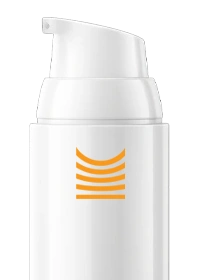
Penis Captivus: What Is It and How To Avoid It
- Jump to a Section:
Penis captivus is an urban myth that the penis can get stuck in the vagina during sexual intercourse when the muscles in the vagina clamp down or tighten on the penis more firmly than usual, making it harder (or impossible) to remove the penis from the vagina.
It is said that the condition can be caused by a number of factors, including anatomical asymmetry or differences in the size and shape of the penis; lubrication Issues; medical conditions such as vaginismus (an obstetrical emergency in which contraction of the muscles around the vagina inhibits sexual intercourse).
However, there are so few cases of confirmed penis captivus.
What is Penis Captivus?
Penis captivus is an occurrence during sexual intercourse when the muscles in the vagina clamp down on the penis more firmly than usual, making it harder (or impossible) to remove the penis from the vagina.
There are a few things that can cause penis captivus, but in reality, it is highly unlikely to actually happen. The most common culprits behind this claim are anatomical asymmetry or differences in the size and shape of the penis and the size and shape of the vagina (or anus). It also is said to be a result of lubrication issues, medical conditions such as vaginismus (an obstetrical emergency in which contraction of the muscles around the vagina inhibits sexual intercourse), and excited or inhibited muscles.
Is It Something To Worry About?
No, not at all. There are little to no documented cases of penis captivus actually happening, and when it has been diagnosed as a result of an anatomical difference or medical condition, the majority of times it is not permanent. In fact, most people who fear penis captivus generally have little to no factual information about the supposed condition.
If you are experiencing difficulty removing your penis from your partner’s vagina (or anus), it is probably due to lubrication and anatomical issues. Consult with a health professional for help clearing up the problem.
In the meantime, there are some things you can do to minimize the chance of this happening in the first place:
- Make sure that both partners are adequately lubricated.
- Use a condom if you are not sexually active with this partner or if you are concerned about the STD status of this partner.
- Be mindful of your size and shape when trying to engage in intercourse, as these may be factors that contribute to difficulty during sex.
Can The Penis Get Stuck In the Vagina?
There is likely no circumstance in which the penis can get stuck within the vagina. If you are experiencing any trouble removing your penis from your partner’s body, it is most likely because of lubrication and anatomical issues. Consult with a health professional for help clearing up these problems.
Friction from the vaginal canal can also cause pain during sexual intercourse, so using lubricants and paying attention to your size and shape may help reduce this kind of discomfort. This type of discomfort is also less likely to be caused by the psychological fear of penis captivus. If you are experiencing any pain or difficulty during sexual intercourse, consult your health professional for more information.
The Muscles In the Vagina
Pelvic floor muscles play an important role in overall sex and reproductive health. They help support the uterus and active bladder as well as provide tone and stability to the vaginal walls. The muscles of the pelvic floor originate from both abdominal and thigh muscle groups, with a majority originating from the latter. When contracted correctly, these muscles can improve sexual function by aiding in bladder control and support during intercourse or other activities that require pressure being applied to the vagina.
These muscles can be strengthened through regular aerobic exercise and muscle-strengthening exercises such as Kegel exercises. It is also essential to maintain healthy eating habits, avoid obesity, and keep stress levels in check to help support these muscles.
These muscles are never so tight that the penis can get stuck within the vagina. This is because the body is biologically designed for sexual intercourse and childbirth, both of which involve the use of these muscles. Anytime these muscles are overly contracted, they can lead to pain and dysfunction, but never a clamp that is so tight that the penis cannot be removed.
Penis Captivus and Anal Sex
The muscles in the anus are typically tighter and more difficult to contract and release than those in the vagina. This is due to anatomical differences between these areas, as well as muscle fiber composition. The anal muscles are made up of more dense and harder fibers that make them stronger, but also less elastic.
Anal sex can be a difficult experience for both partners if the muscles aren’t relaxed and engaged properly. When these muscles are too tight, they can cause pain during penetration as well as difficulty in withdrawing the penis after orgasm. It's important to practice anal sex with lube and gradually inserting the penis first. This way, you can avoid potential pain and discomfort.
Penis captivus, again, has not been documented in the case of anal sex. It likely has never happened and is nothing more than an urban legend.
Pain and Sex
If sex hurts you or your partner, stop. Talk about it, and figure out what's causing the pain.
There are a lot of factors that can contribute to why sex might hurt one or both partners: tightness in the muscles around your pelvic area from arousal or orgasm; injury (such as cuts, bruises, burns); past experiences with painful sex; and various medical conditions (such as vaginismus, interstitial cystitis, or vulvodynia). If you're not sure why sex is hurting you, ask your partner. They may be able to give you some insight into how their own body interacts with yours during sexual activity.
If you're experiencing pain during sex, the best course of action is to talk to your doctor. Your doctor can do a physical examination to rule out any serious underlying medical condition and/or prescribe treatment for painful sex.








